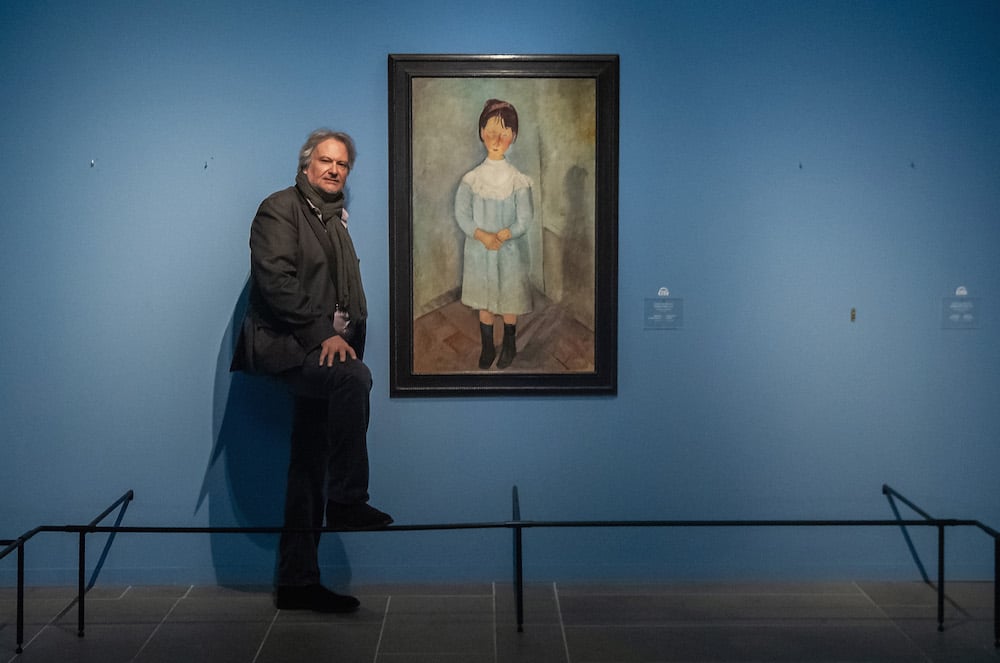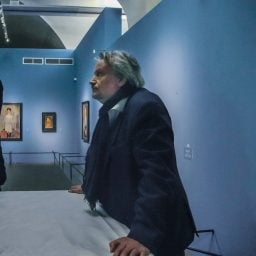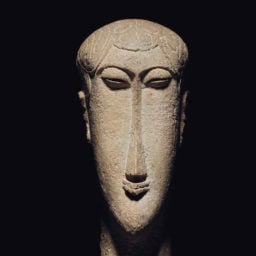Amedeo Modigliani is one of the world’s most expensive—and most forged—artists. As a result, a cottage industry has sprung up among fiercely competitive experts who offer opinions about the authenticity of his work. Now, one of the most prominent experts is suing a scholarly institute, claiming the organization is unlawfully hoarding thousands of pages of original research and archival materials—and planning to make that very valuable information public.
Marc Restellini, a leading Modigliani scholar, has been working on a catalogue raisonné of the artist’s work for the past several decades—one that is due to be published by next year and poised to argue that a significant number of previously disputed paintings are authentic. There’s just one problem: another organization claims it has the right to put his research online first.
Yesterday, Restellini filed a federal lawsuit in New York against the Wildenstein Plattner Institute, an organization that seeks to “reinvent archival research for the digital generation,” for allegedly violating his copyright and misappropriating trade secrets. He is asking the court to compel the organization to refrain from publishing his research and destroy any digital copies.
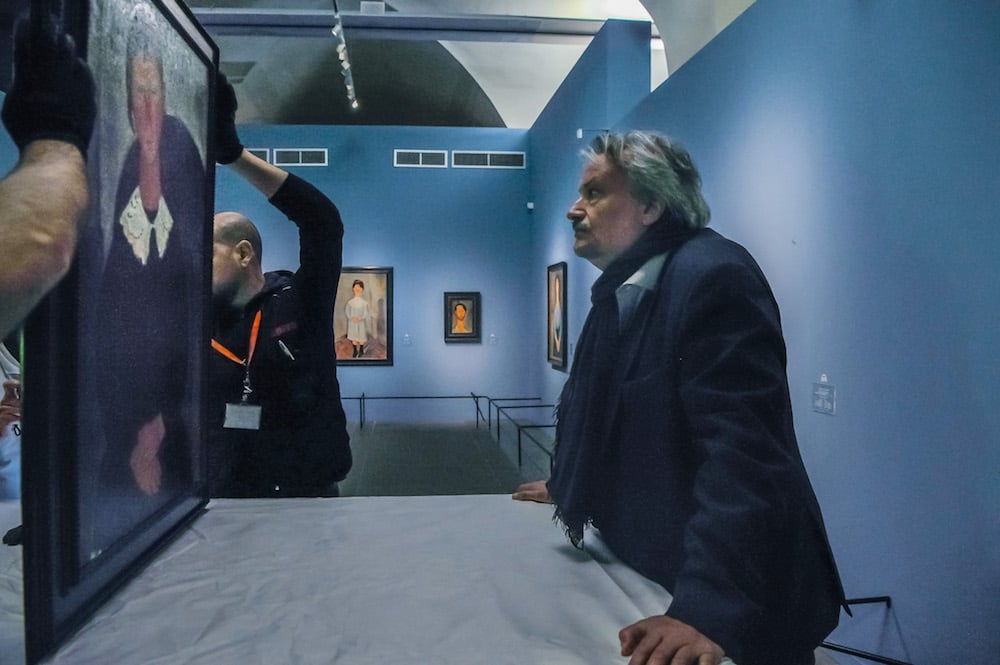
Marc Restellini at the dismantling of “Modigliani and the Montparnasse Adventure” the show he curated in Livoro, Italy, in 2018. Photo by Laura Lezza/Getty Images
A representative for the Wildenstein Plattner Institute did not respond to a request for comment from Artnet News, but called the lawsuit a “publicity stunt” in a statement to the New York Times, adding that it was confident it had full rights to “share its Modigliani archives with the public in furtherance of its charitable mission.”
The legal fight has the potential to become an important factor in the high-flying market for Italian-born Modigliani, who was plagued with poor health until his death at 35. His works are internationally sought-after trophies; two of his paintings sold for more than $100 million each within the past five years at auction.
But Modigliani’s market has long been marked by controversy, including rampant fakes, heated debates over authenticity, and competing catalogues raisonnés (there have been at least five efforts to create a comprehensive volume to date). At one point, Restellini has said the disputes became so intense he was receiving death threats. The ability to prove that a Modigliani is authentic is worth tens of millions of dollars—and Restellini is concerned that the Wildenstein Plattner Institute wants to give that knowledge away for free.
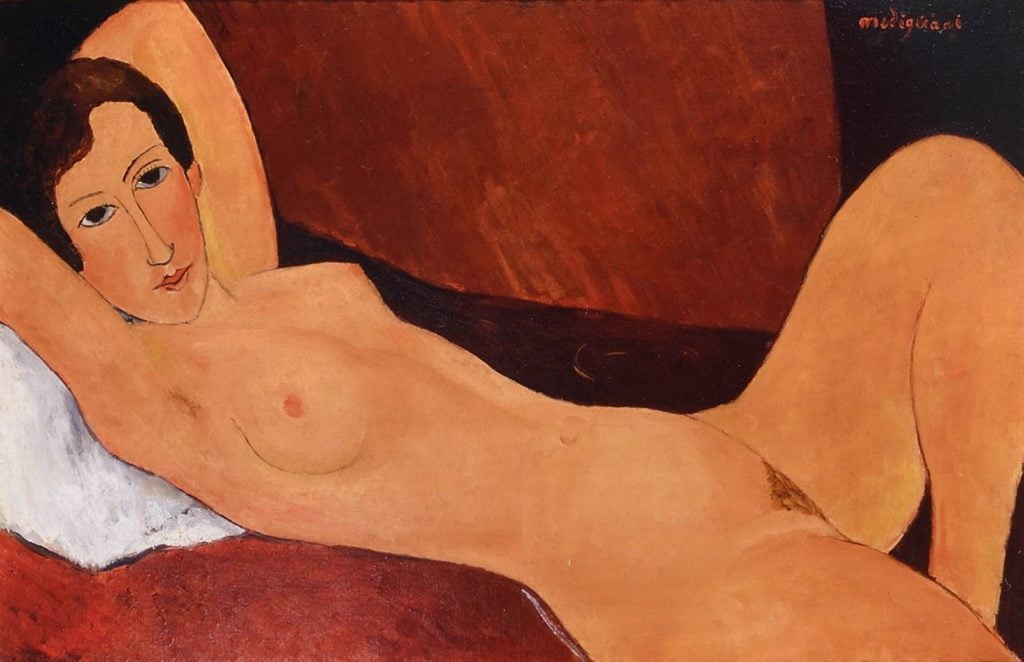
This Amedeo Modigliani, Reclining Nude (Portrait of Céline Howard), was seized from an exhibition in Genoa and proven to be a fake. Courtesy of the Genova Palazzo Ducale.
The complaint quotes an online talk on March 5 in which the director of the institute said that “scanning an entire archive and putting it online” was a “no-brainer” and suggested that everyone should “oppose overly restrictive applications of copyright and intellectual property.”
The dispute’s origins stretch back to the founding of the institute. Restellini initially began his research with the support of a preceding entity—the Paris-based Wildenstein Institute, founded in 1970 by prestigious art dealer Daniel Wildenstein—in 1997. After Daniel died in 2001, his son Guy, also part of the family’s art-dealing dynasty, oversaw the institute. (Notably, Restellini asserts he was never an employee of the institute, nor did he receive compensation for his work; the collaboration with Guy ended in 2014.)
In November 2016, Guy joined forces with German collector and technology entrepreneur Hasso Plattner to launch the Wildenstein Plattner Institute, which aims to digitize and increase accessibility of art-historical documents. As part of the merger, Wildenstein gifted Restellini’s papers to the newly formed Wildenstein Plattner Institute, according to the court documents. But the institute never sought or obtained permission to transfer the material, Restellini claims, nor did the original Wildenstein Institute acquire the rights to his work.
This is particularly troubling for the scholar because he has been working toward the long-awaited publication of his own catalogue, now delayed further by the institute, which “has refused to return, and to recognize Restellini’s ownership interest in, the material,” according to the court filing. Further, Restellini alleges that, under the guise of its nonprofit status, the institute is trying to pass off his life’s work as its own without any compensation or attribution.
“As the complaint demonstrates, Mr. Restellini is, and always was, the sole author of the catalogue raisonné and the owner of all of the underlying material associated with its authorship,” said Restellini’s attorney, Dan Levy, in a statement. “Because the Wildenstein Institute never had any rights in any of Mr. Restellini’s material, it could not have transferred any rights to the Wildenstein Plattner Institute.”
